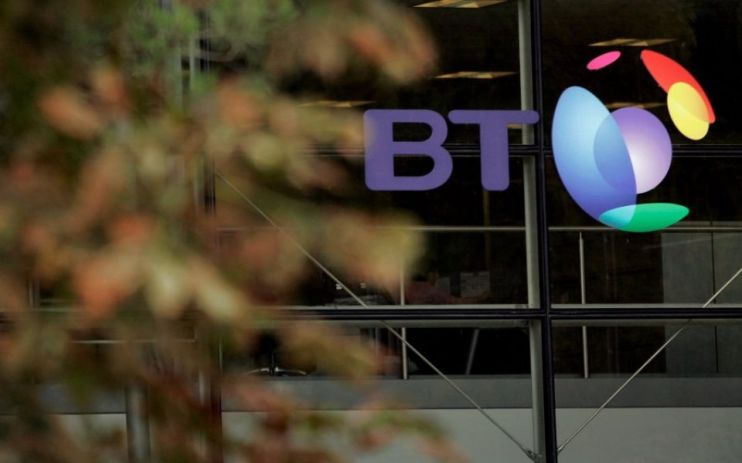BT CEO warns Labour’s part-nationalisation plan could cost £100bn

BT’s chief executive Philip Jansen has warned that Labour’s plan to renationalise parts of the telecoms giant could cost more than £100bn.
Labour will reveal its election pledge to part-nationalise BT later today, with the policy announcement sending BT’s share price down as much as three per cent in early trading.
“These are very, very ambitious ideas and the Conservative Party have their own ambitious idea for full fibre for everyone by 2025 and how we do it is not straight forward,” Jansen told the BBC.
Read more: City reacts with shock to Labour’s plan to part-nationalise BT
“It needs funding, it is very big numbers, so we are talking £30bn to £40bn and if you are giving it away over an eight year time frame it is another £30bn or £40bn. You are not short of £100bn.”
Labour shadow chancellor John McDonnell is set to reveal the election policy later today.
McDonnell will say: “This is public ownership for the future.
“Every part of this plan has been legally vetted, checked with experts, and costed.”
Labour said the capital cost of the rollout of the full-fibre network would be in excess of £20bn, which it said it would pay for by taxing tech giants.
The party will say that parliament will set the cost of taking BT divisions back into the public realm, sparking fears of a heavy discount to the market rate.
Prime Minister Boris Johnson slammed Labour’s plan to part-nationalise BT as “crackpot” in comments to the BBC today.
“What we won’t be doing is some crackpot scheme that would involve many, many tens of billions of taxpayers’ money nationalising a British business,” Johnson said.
BT’s best defence? Protecting shareholders
And Jansen today called on the party to carefully consider how shareholders would be affected by the plan.
“Our shareholders ultimately own the company and they provide the investment that funds the infrastructure in this country,” he told the BBC’s Today programme.

“As you know our share price has gone backwards significantly – we were at £5 not long ago and now we’re down to around £2.”
Read more: BT boss says full-fibre rollout should be next government’s top priority
“Shareholders are nursing massive losses on their investments should they have bought in at £5 say two years ago. That’s market forces and the reason for that is they recognise we’re going to invest very, very heavily in a competitive market and there’s a lot of risk in that investment.
“Any change like the current idea of nationalising part of BT or the infrastructure bill or giving it away for free takes away that competitive nature.”
Jefferies advised that BT’s best bet at defending its business from Corbyn and McDonnell, was Labour to win at the election, would be by decrying the destruction of shareholder value.
“We understand that BT’s most effective legal recourse might be to defend shareholder value, not attempt to block government policy,” the investment bank said in a note.
“The UK has bilateral investment treaties with countries in which overseas BT shareholders are located, and these are intended to protect against asset expropriation. UK-based shareholders might expect to receive equal treatment.”
Muted hit on BT as Labour election hopes low
BT’s share price trimmed earlier losses but was still down 2.4 per cent at 190.6p at 11.20am.
Markets.com chief analyst Neil Wilson said many Brits will be worried about the fallout of Labour’s policy, should the party win the December general election.
“There are a lot of concerns about the implications of this policy on the rest of the business, the pension fund deficit, and of course pensions that own the stock,” he said.
Read more: Labour’s chance of an election majority is ‘close to zero’, says top pollster
“It means BT can now be added to the list of ‘Labour danger’ stocks which includes utilities and Royal Mail. Of course all UK stocks are in the firing line because of plans to hand shares to workers.
“Factored into this, as with the entire nationalisation question, is the likelihood of a clear Labour majority to get these contentious and costly policies through,” Wilson added. “On that front, polls suggest BT is safe for now.
AJ Bell investment director Russ Mould suggested the plan may not get off the ground with a top pollster ruling out a majority election win for Labour.
“The relatively muted share price response likely reflects investors’ scepticism about the plan getting off the ground,” he said. “Current polling suggests Labour is unlikely to win a majority in the looming election.
“For now, given Labour’s current polling numbers the concern is fairly minimal, and investors will be hoping it stays that way, which helps explain the fairly muted share price reaction,” added CMC Markets’ chief market analyst, Michael Hewson.
Pressure weighs on BT amid dividend doubt
Mould warned that investors may yet feel on edge if Labour enjoys a late boost in the polls, something that would increase the likelihood of the party splitting up BT’s assets.
Read more: Labour’s BT threat forces Talk Talk to pause sale of Fibrenation
“There is also a risk that Labour’s idea proves popular with voters and other parties feel compelled to move at least some way in this direction,” Mould added.
That could be a nightmare for BT, which has already faced questions over how it will fund a huge full-fibre rollout that could see it raid its dividend.
“This would be another headache the company doesn’t need as it also contends with questions over its dividend policy as well as the pressures of its existing investment in fibre broadband and 5G mobile.”
Main image credit: BT